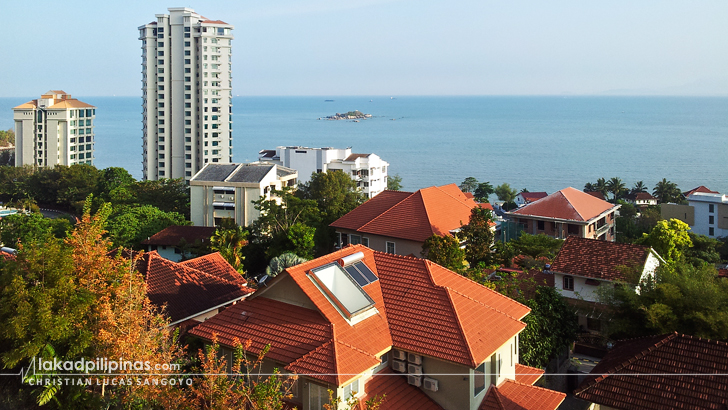When you mention Penang, the first thing that comes to mind, besides food, is the UNESCO World Heritage inscribed city of Central George Town—it is the state’s claim to fame. But Penang is huge, and there are other places on the island worth visiting, like the suburbs of Tanjung Bungah and Tanjung Tokong—both off-the-radar places for tourism that can be explored for a day, or even half a day. Perfect for people who’ve already ticked all the places to see in George Town or those looking for a side trip from Batu Ferringhi.
UNDERSTAND TANJUNG BUNGAH & TANJUNG TOKONG
 |
| AN EVENING VIEW OF TANJUNG BUNGAH AND FARTHER OFF, TANJUNG TOKONG, IN PENANG |
Tanjung or Tanjong in Malay means cape, and these two eastern seaside towns are mostly upscale residential areas—home to most of Penang’s expats.
Tanjung Bungah, or Cape Flower, borders the famous beach town of Batu Ferringhi on its northern side. And right below it is Tanjung Tokong, or Cape Temple, which sits right beside the northern border of Central George Town. Both Tanjung Bungah and Tokong are suburbs of George Town City, which encompasses the whole of Penang Island.
HOW TO GET TO TANJUNG BUNGAH & TANJUNG TOKONG
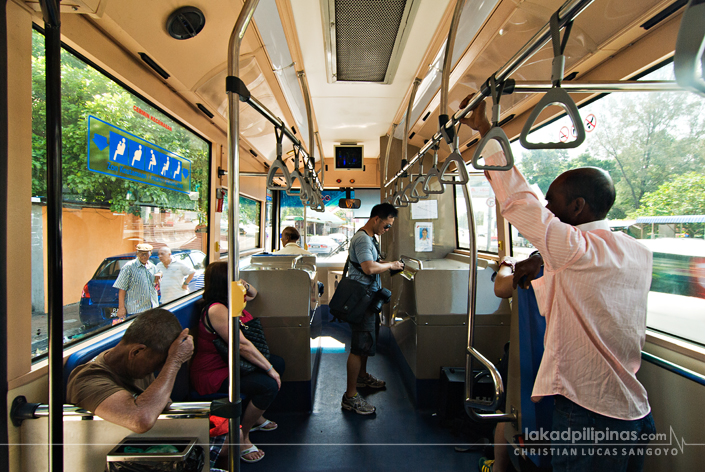 |
| RAPID PENANG BUS FOR GEORGE TOWN – TANJUNG BUNGAH – TANJUNG TOKONG – BATU FERRINGHI ROUTE |
Besides hailing a taxi or a Grab Car, there are numerous public transportation buses that ply the main roads of Tanjung Tokong and Tanjung Bungah—Rapid Penang buses 101, 102, and 104—that goes to Batu Ferringhi up north, and Central George Town and Penang International Airport, down south.
TANJUNG BUNGAH TOURIST SPOTS
Most of Tanjung Bungah’s tourist spots are located by the sea, but a few of these can also be found on its hilly western portion. For easier navigation, we’ll start at the northernmost part of Tanjung Bungah, going down south where its beaches connect to its neighbor—Tanjung Tokong’s—beach areas.
TIKUS ISLAND
  |
| TIKUS ISLAND, TANJUNG BUNGAH ~ MAP FROM GOOGLE MAPS |
One of the first thing I noticed during our stay at Tanjung Bungah was Tikus Island, a small islet located almost a kilometer away from the coast of Tanjung Bungah Beach. It literally translates to Rat Island, not because it’s infested by rodents, but due to the collection of smooth large rocks that make up the island which vaguely looks like a profile of a rat when viewed from above.
 |
| PULAU TIKUS OR RAT ISLAND ~ PHOTO BY CMGLEE FROM WIKIMEDIA COMMONS |
There is actually a beach on the island and a tomb—the Shrine of Seyad Mohamed Kuddoos Oliyullah, a local Muslim saint, apparently. It is a proper shrine with a jetty leading to it. There’s, however, no regular boat service or even a tour that takes people to and from Tikus Island. Getting to the island requires a kayak, and these can be rented from the Penang Water Sports Centre.
PENANG FLOATING MOSQUE
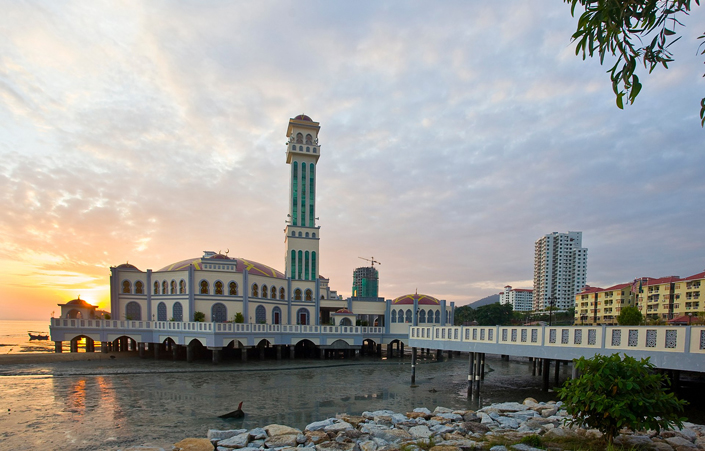 |
| SUNRISE AT PENANG’S FLOATING MOSQUE ~ PHOTO BY SHEBALSO FROM WIKIMEDIA COMMONS |
There’s the KK Floating Mosque and there’s Melaka’s Floating Mosque. Penang followed suit and built their own floating mosque right by the Straits of Melaka. Fronting a middle-eastern style façade mixed with local motifs, it has a seven-story high minaret and a muṣallá prayer hall that can accommodate 1,500 people.
Like other floating mosques in Malaysia, it’s actually built on stilts and only appears to float when the tide is high—and it’s even more beautiful when it coincides with the rising sun.
TANJUNG BUNGAH PUBLIC BEACH
 |
| THE EXPANSIVE TANJUNG BUNGAH BEACH ~ PHOTO BY SOUMYADEEP FROM PIXABAY |
Before Batu Ferringhi became the go-to public beach in Penang, Tanjung Bungah Beach was the beach for both tourists and Penangites. It’s almost two kilometers long and has creamy white sand bordered by trees, posh condominiums, and mountains beyond. Penang’s Floating Mosque is also located on the western part of this beach.
TANJUNG BUNGAH MARKET
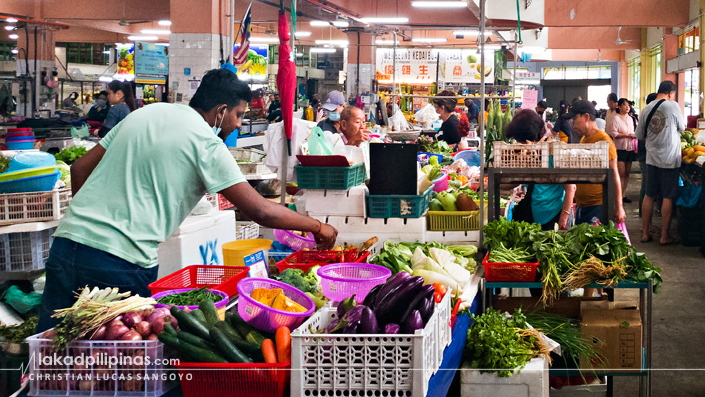 |
| MORNING SCENE AT THE TANJUNG BUNGAH WET MARKET |
The biggest wet market north of Penang, the Tanjung Bungah Market is a bustling two-story building housing a wet and dry market, and a hawker center. On Tuesday nights, the grounds surrounding the market transform into a night market.
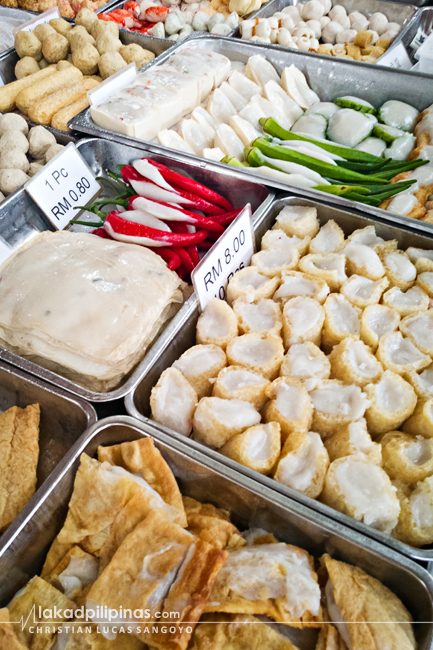 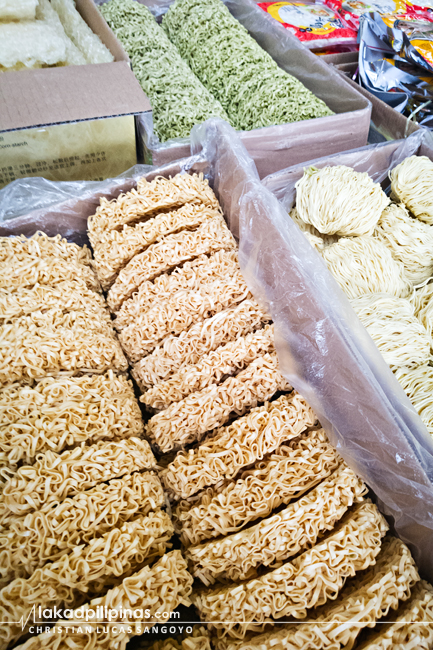 |
| INTERESTING FOODS AT THE MARKET |
The market itself is quite interesting, even for tourists, with its plethora of local foodstuff. I find their selection of fresh and dry noodles and dimsums to be remarkable.
Its hawker center is typical, but not that crowded. People recommend the hokkien mee, hokkien prawn mee, and popiah.
PEARL HILL PARK
 |
| TANJUNG BUNGAH’S PEARL HILL PARK ~ PHOTO BY CMGLEE FROM WIKIMEDIA COMMONS |
For people who are into short hikes, the Pearl Hill Park is the perfect course. Elevated 222 meters, its looping trail meanders for about 5.3 kilometers with a view of the surrounding areas of Tanjung Bungah and the Melaka Straits. The hike is fairly easy, with paved roads that can even accommodate bicycles. Be sure to bring insect repellents though.
LONGEST MALAYSIAN FLAG MURAL
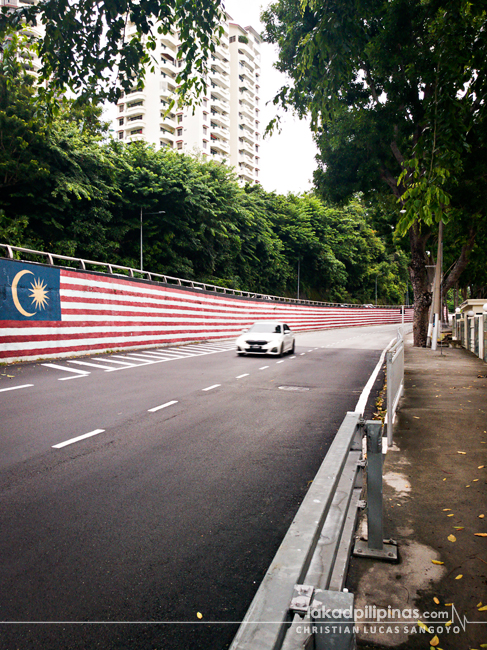 |
| THE LONGEST JALUR GEMILANG MURAL IN THE WORLD |
Painted off the side of an elevated road along Tanjung Bungah’s main road is Malaysia’s longest national flag, the Jalur Gemilang or the Stripes of Glory. 541 meters long and 3.3 meters high, it was painted in 2003 by the Young Muslim Sports Club.
COLLEGE GENERAL SEMINARY
 |
| THE COLLEGE GENERAL IN TANJUNG BUNGAH ~ PHOTO FROM GOOGLE MAPS |
Located at the foot of Pearl Hill is the historic College General Seminary. It was founded in 1665 in Ayuthia, Siam—now Ayutthaya, Thailand—and has since moved to other parts of Thailand, Cambodia, India, and Melaka before relocating in Penang in 1808.
PATRICK’S BEACH
 |
| TANJUNG BUNGAH’S PATRICK’S BEACH ~ PHOTO FROM GOOGLE MAPS |
Located beside the Penang Swimming Club, Patrick’s Beach is a pocket beach about 300 meters long. It is probably the least visited beach in Tanjung Bungah, good for those who abhor the crowd. It can be accessed from the main road through Jalan Abbas.
PANTAI BEACH
  |
| PANTAI BEACH IN TANJUNG BUNGAH |
This beach is sometimes called Mercure Penang Beach, Hompton Beach, or BoraBora Beach—depending on which resort it fronts. On Google Maps, it is labelled as Pantai Beach, but pantai in Malay means beach—so, is it really named Beach Beach? I doubt it. Even though I have actually walked its 700-meter stretch, I still have no clue as to its official name.
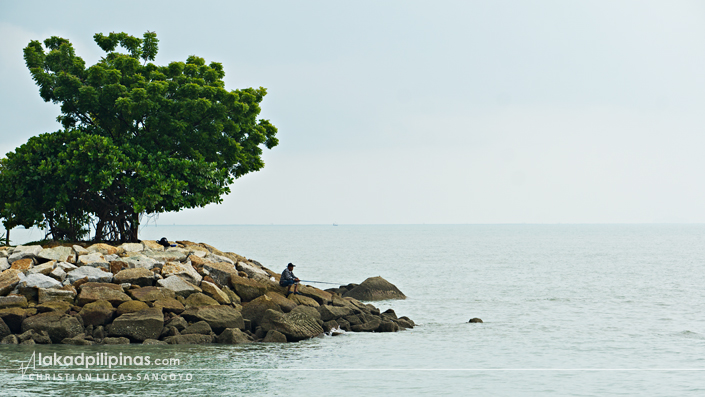 |
| PANTAI BEACH’S NORTHERN BREAKWATER |
It has the usual Penang cream-colored sand, but on its western side the shore is replete with shells, so bring proper footwear. The beach terminates on the east on the border of Tanjung Tokong’s Tua Pek Kong Temple.
TANJUNG TOKONG TOURIST SPOTS
Before glitzy apartments lined Tanjung Tokong’s coastline, it was once a quiet fishing village, and this actually can still be gleaned from parts of Tanjung Tokong Beach. It is smaller than Tanjung Bungah, and like its northern neighbor, its tourist sites can mostly be found along the sea. If you continue southwards, past its border, there are two famous temples, a Penang Thai and Burmese Temples, and a famous hawker place, Gurney Drive Hawker Center, just past it, which are actually part of Central George Town.
TUA PEK KONG TEMPLE
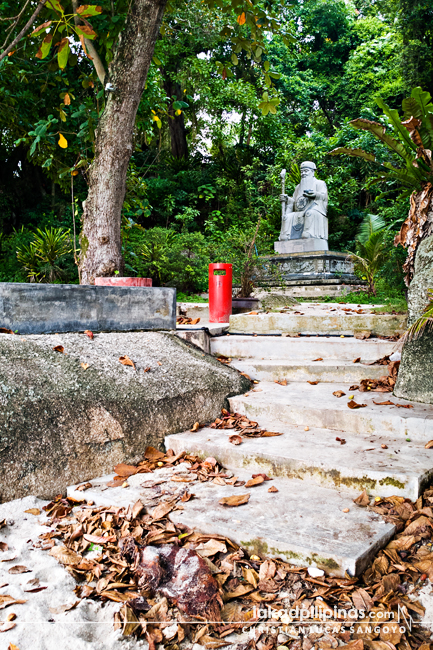  |
| TUA PEK KONG STATUE AND HILL ENTRANCE IN TANJUNG TOKONG |
Tua Pek Kong is a Taoist deity that is believed to bestow spiritual guidance, wealth, safety, and harmony to its faithful. Tua Pek Kong, translated, literally means Grand Uncle. The deity is based on a Hakka clan Chinese that accidentally landed on Penang as he was sailing to Sumatra. It is said to be the source of Chinese migration in Penang.
The first Tua Pek Kong Temple was built on the border of Tanjung Bungah and Tanjung Tokong after his death. And tokong, which means temple, is actually where Tanjung Tokong got its name.
 |
| THE TUA PEK KONG TEMPLE |
The temple itself is not that big and a bit unremarkable, but finding his larger than life stone statue near Tanjung Bungah Beach was a bit of a surprise. I also saw a closed off stairs leading to a hill, probably a view point.
TANJUNG TOKONG BEACH
 |
| KOLEK BOATS ALONG TANJUNG TOKONG BEACH |
Directly after Tanjung Bungah’s Pantai Beach and connected by the Tua Pek Kong Temple is the crescent-shaped Tanjung Tokong Beach. Littered by traditional blue and red Malaysian kolek fishing boats, it echoes the town’s origin as a fishing village. The beach has similar features with its neighbor’s and stretches for about half a kilometer before terminating on the Seri Tanjung Penang Promenade.
TANJUNG TOKONG WAVE BREAKER VIEWPOINT
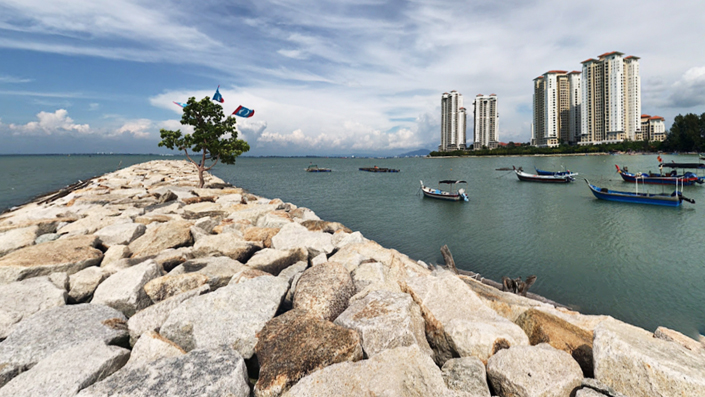 |
| THE BREAKWATER VIEWPOINT AT TANJUNG TOKONG ~ PHOTO FROM GOOGLE MAPS |
Jutting out 160 or so meters out into the sea along Tanjung Tokong Beach’s western portion is the View Point Wave Breaker. Made from boulders, it is literally made to keep the waters along Tanjong Tokong Beach calm for the fishing boats that dock on its shore. It has also became a local go to place for a grand view of the two adjoining beaches.
TANJUNG TOKONG WORLD WAR 2 RELICS
 |
| WORLD WAR II STRUCTURES IN TANJUNG TOKONG BEACH ~ PHOTO FROM GOOGLE MAPS |
Dividing Tanjung Bungah and Tanjung Tokong Beach are a series of small concrete structures—pillboxes, bunkers, and a three-story lookout tower—constructed by the British in anticipation of the Japanese invasion during the Second World War. Japan did invade and occupy Penang in 1941, but these structures remain, surviving the strafing and bombings on the island.
SERI TANJUNG PINANG PROMENADE
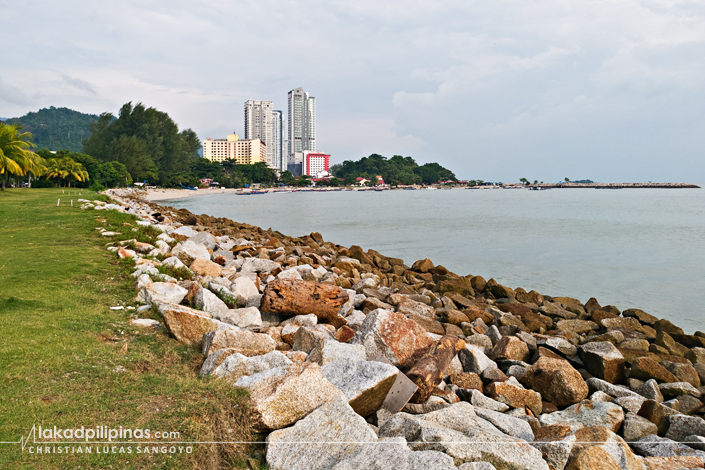 |
| THE NORTHERN PORTION OF THE SERI TANJUNG PINANG PROMENADE |
Where Tanjung Tokong Beach ends, starts the Seri Tanjung Pinang Promenade. The park walkway follows the coast as it turns northward to the Straits Quay Marina. It then continues past the marina and the shopping mall, past a bridge that connects to the artificial island being reclaimed parallel it, and into City of Dreams.
 |
| EVENING VIEW OF THE SOUTHERN PORTION OF SERI TANJUNG PINANG PROMENADE |
It’s about two kilometers long, perfect for walking and jogging. The view of Gurney, Georgetown, and Butterworth is particularly lovely during the evenings when the building are all lighted up.
STRAITS QUAY MALL & MARINA
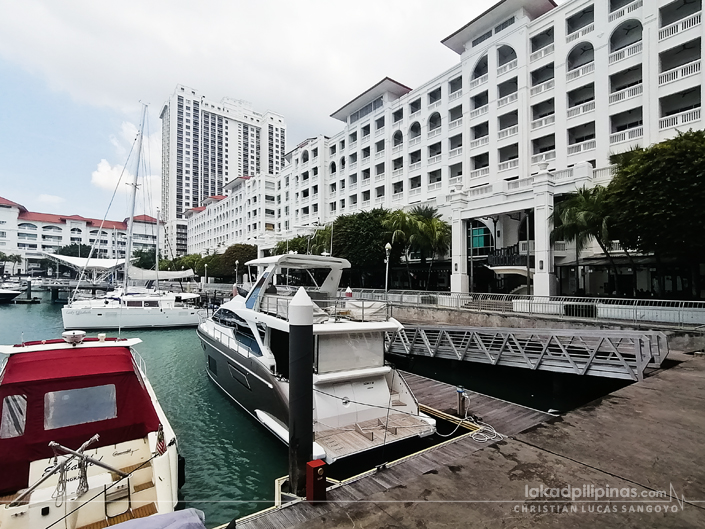 |
| STRAITS QUAY MARINA AND MALL IN TANJUNG TOKONG |
A swanky mall with swanky a department store and swanky food places—Straits Quay Mall & Marina is Tanjung Tokong’s twelve acres of swankiness. Managed by E&O Penang, it sports a similar colonial era façade with the famous hotel. It literally has a hundred shop lots, numerous bar and restaurants, and even a performing arts theater.
 |
| STRAITS QUAY MARINA’S TOWERING LIGHTHOUSE AT NIGHT |
It also has a proper marina that can berth forty boats and a towering seven-storey faux lighthouse that houses E&O’s visitor center.



